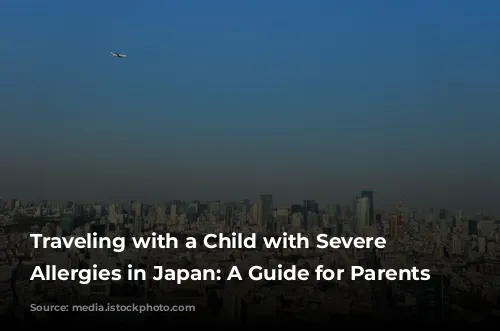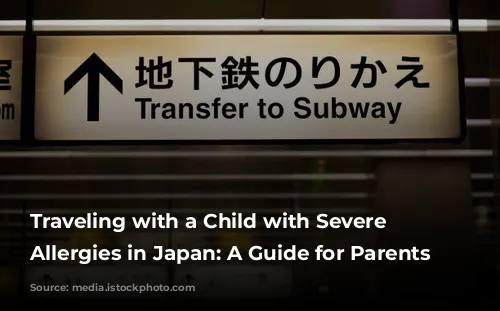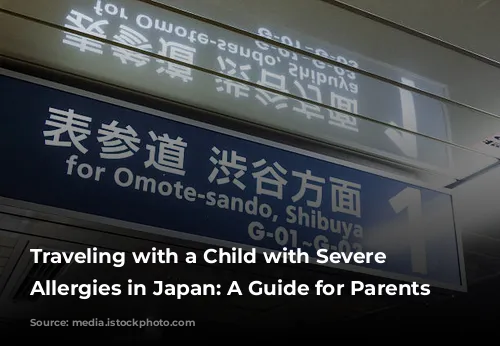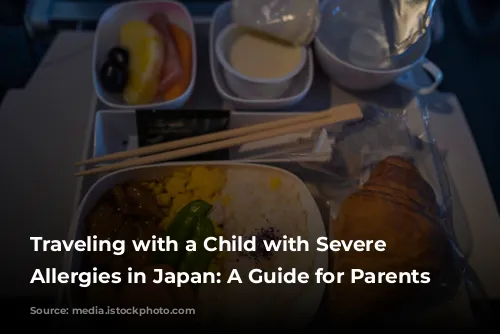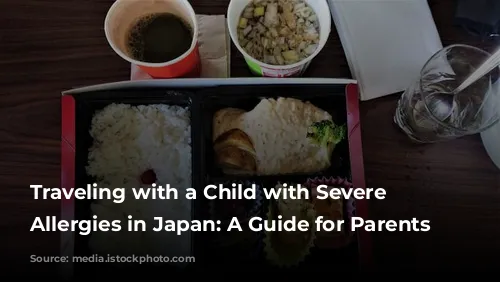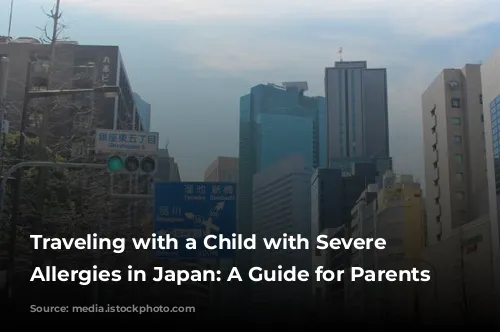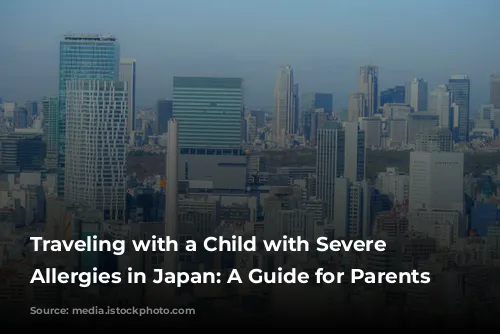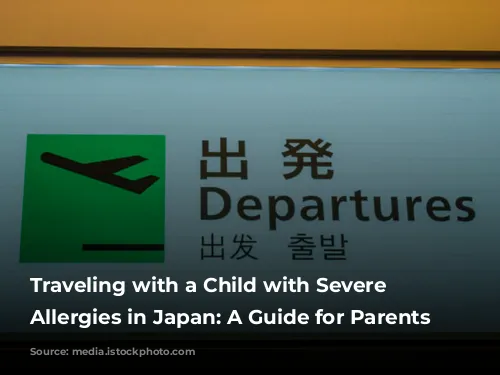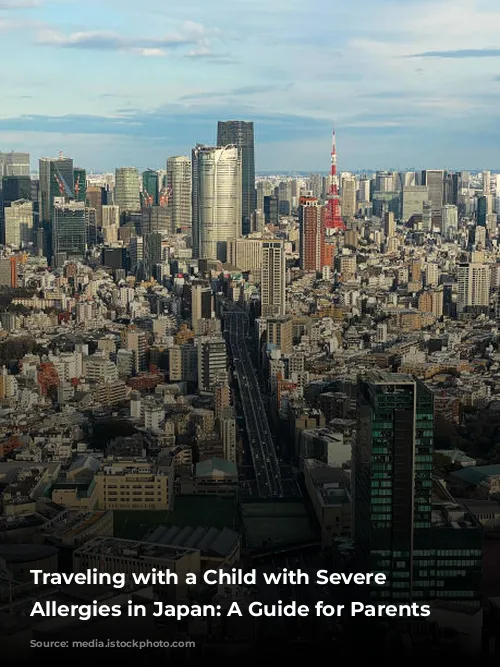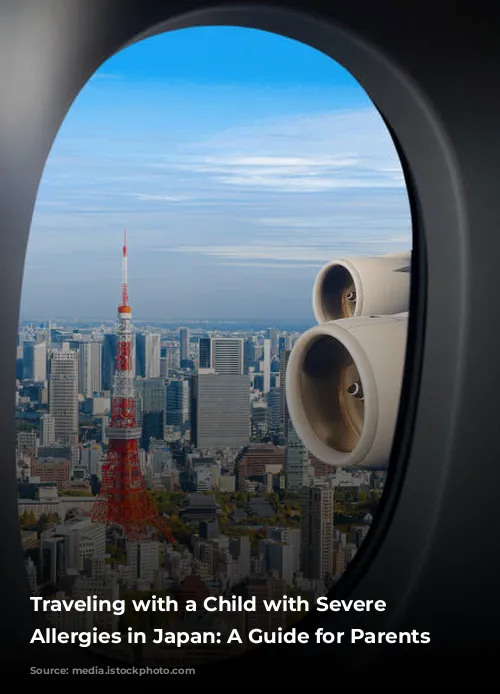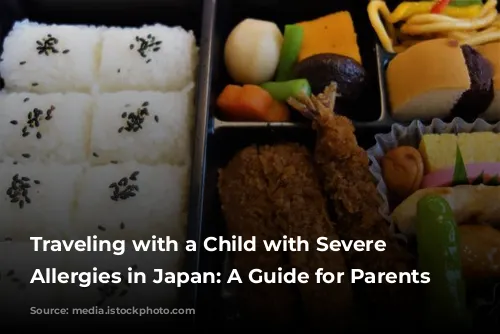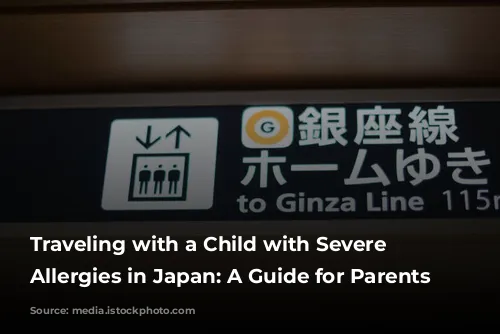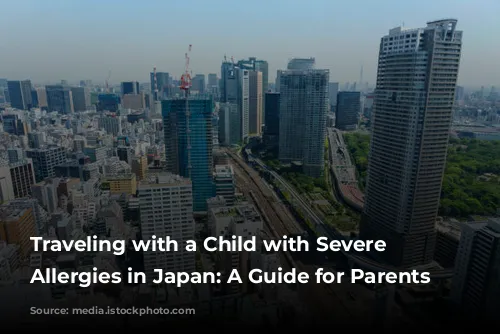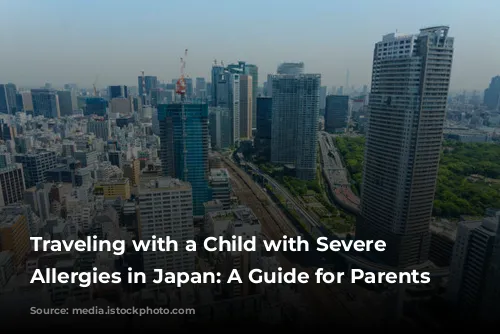Traveling to Japan with a child with severe food allergies can be daunting. This guide provides crucial tips to navigate this unique experience.
Please remember: This article aims to provide advice, but I am not a medical professional. Always conduct thorough research, especially regarding the Japanese medical system, as emergencies may require immediate care.
It’s crucial to always ask restaurants and cafes about potential allergens before your child consumes anything. While this article offers guidance, it cannot guarantee a 100% safe food environment. Constant verification is essential.
Navigating Food Allergies in Japan: The Challenges
Japan presents unique challenges for those managing food allergies compared to other countries. Here’s why:
1. The Language Barrier: Communicating food allergies effectively is crucial. While a simple “no cheese” request might be clear in English, navigating these complexities in Japanese can lead to misunderstandings. This risk is particularly high when relying on someone learning a new language, potentially leading to dangerous misinterpretations.
2. The Lack of “Custom-Made” Ordering Culture: Japanese dining etiquette emphasizes accepting a dish as prepared. It’s uncommon to request modifications like omitting ingredients or substitutions, as these are perceived as disrupting the chef’s intended composition. This “trust in the chef’s expertise” approach, coupled with the desire to avoid inconvenience, can make requesting allergen-free adaptations challenging.
3. Familiar Products May Be Different: Even familiar brands might have variations in preparation or ingredients, making it crucial to avoid assumptions. For instance, McDonald’s fries, though vegan in Australia, are cooked in beef fat and palm oil in Japan.
Preparing for Your Trip: Essential Steps
Before embarking on your adventure, carefully consider these crucial preparations:
1. Consult your Doctor: Discuss your concerns and your child’s specific allergies with your pediatrician. This discussion can provide valuable insights based on their experience with similar cases.
2. Medication Regulations: If you need to bring medication from your home country, ensure it’s permitted in Japan. Research the “Yunyu Kakunin-sho” (importation approval) process through the Ministry of Health, Labour and Welfare of Japan website.
3. Comprehensive Travel Insurance: Invest in a robust travel insurance policy that covers you from the moment you book your flights and accommodation. This safeguards you in case of unexpected events before or during your trip.
4. Understanding Medical Emergencies: Prepare for any medical emergencies by familiarizing yourself with the procedures and resources available in Japan. The article “What to Do in a Medical Emergency in Japan” provides valuable insights from a local parent’s perspective. Additional resources include Japan Living Guide and foodallergy.org’s Japan Travel Tips PDF.
5. Choose the Right Accommodation:
-
Apartment Hotels: Opt for apartment hotels like Mimaru with kitchenettes, allowing you to prepare familiar, allergen-free meals. Their English-speaking 24-hour reception offers additional support.
-
Global Hotel Chains: Larger chains like Hilton or Hyatt offer the advantage of explaining dietary requirements in advance, allowing you to assess restaurant options, room service, and readily available support from their English-speaking reception.
6. Pack Abundant “Safe” Snacks:
-
Bring familiar snacks to provide comfort and reduce exposure to unfamiliar foods. Although you can’t bring fresh produce or meat, consider bringing freeze-dried meals, snacks, and even tinned soups.
-
Invest in a small kitchen appliance: Consider purchasing a cheap toasted sandwich maker to reduce the risk of cross-contamination when preparing meals in your apartment.
7. Explore Strict Vegan Restaurants:
- If your child’s allergies include dairy or eggs, strictly vegan restaurants offer a safe option. Apps like Happy Cow, although with fewer options compared to places like Australia, offer a reliable list of vegan eateries in your chosen destinations. While vegan meals may not be your usual fare, prioritizing safety over familiar tastes can offer peace of mind.
8. Utilize Gluten-Free Resources:
- For gluten-free diets, the Facebook group Gluten Free Japan is an invaluable resource. This community provides insights and recommendations for travelers and residents alike. Additionally, “The Ultimate Gluten Free Survival Guide for Traveling in Japan” by Fukuoka Eats offers comprehensive information.
9. Look for Low Allergen Menus:
-
Many restaurants, particularly those catering to children, offer low-allergen options. If your child’s allergies are covered by these menus, they can provide convenient dining solutions.
-
Popular restaurant chains like Cocoichi Curry, Royal Host, Gusto, Cocos, Denny’s Japan, Joyful, TonDen, Tokyo Disney Resort, and Universal Studios Japan offer low-allergen options.
-
Soup Stock offers gluten-free options.
-
Kurasushi sushi train provides an allergen list for its menu.
-
Denny’s Japan offers a “zero meat” plant-based burger.
Practices to Avoid:
1. Don’t Assume Familiarity:
- Resist the urge to assume that a familiar product from home will be prepared or stored the same way in Japan. This is crucial to avoid potential cross-contamination or unexpected ingredients.
2. Don’t Rely Solely on Allergen Cards:
-
While allergen cards in English and Japanese can be helpful, they should not be the sole solution.
-
Emphasize the seriousness of your child’s condition on the card. Phrases like “Eating this ingredient could be life-threatening” are essential to convey the urgency.
-
Understand that even with cards, some restaurants may be unable to cater to your specific needs.
-
Thorough research, communication with your hotel concierge, and pre-ordering are essential.
-
Always double and triple check before your child eats anything.
Remember, planning ahead, being proactive, and adapting to the unique challenges of dining in Japan with food allergies is key to a safe and enjoyable trip.
For additional tips and support, connect with The Tokyo Chapter on Instagram.
